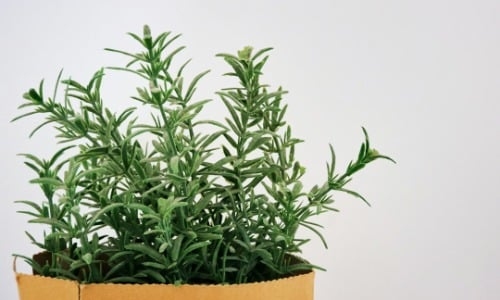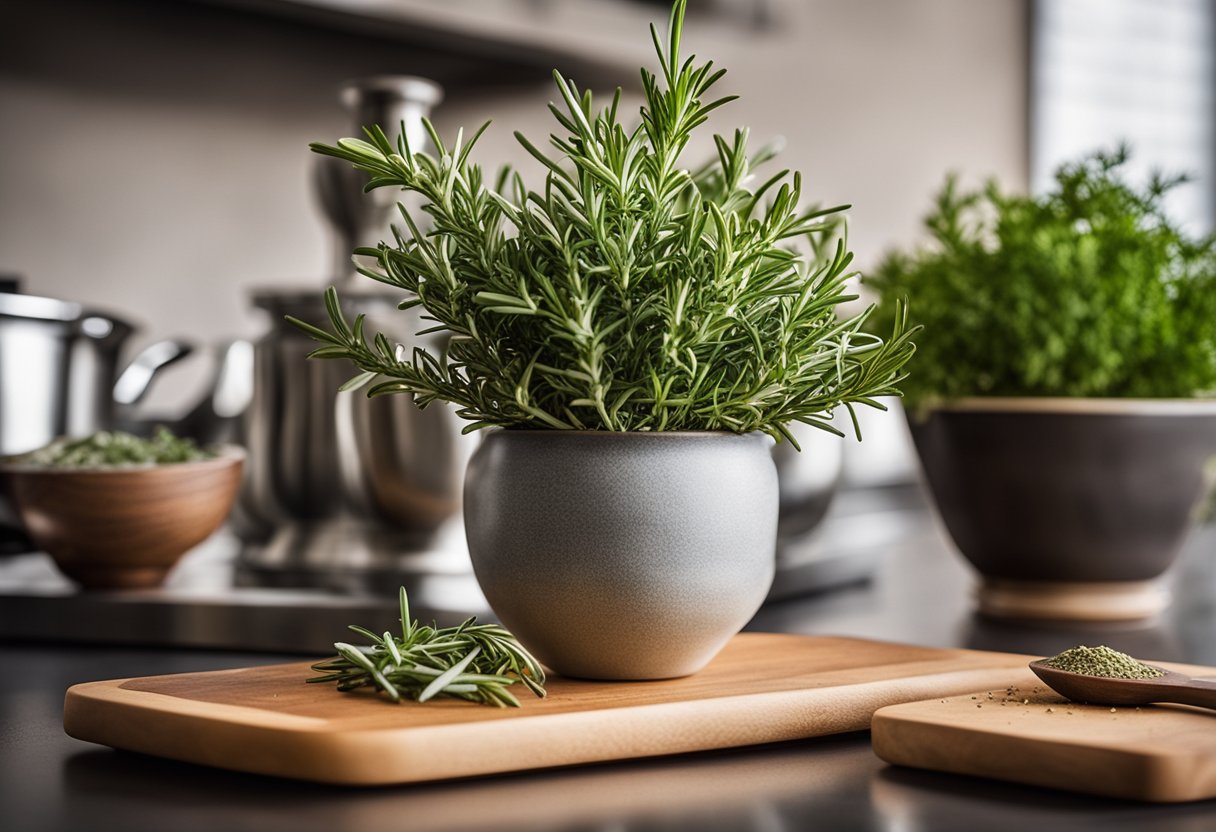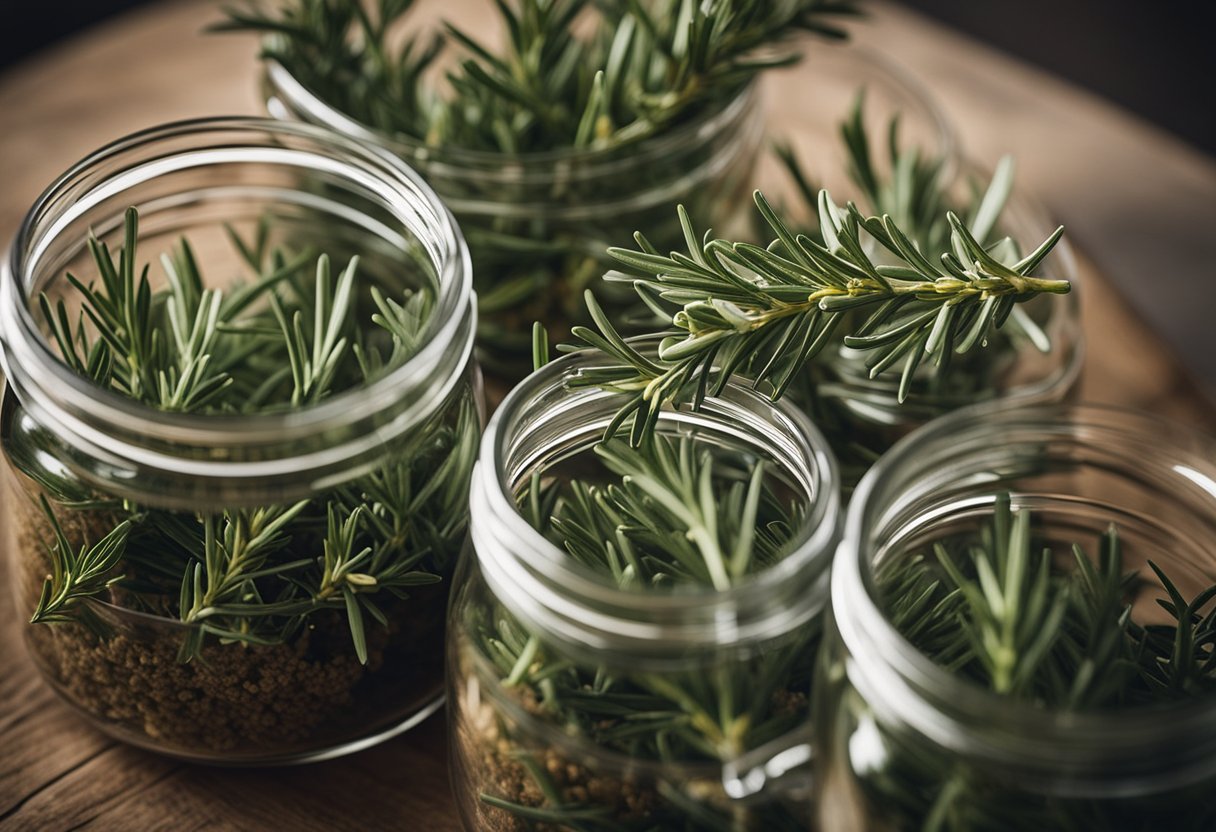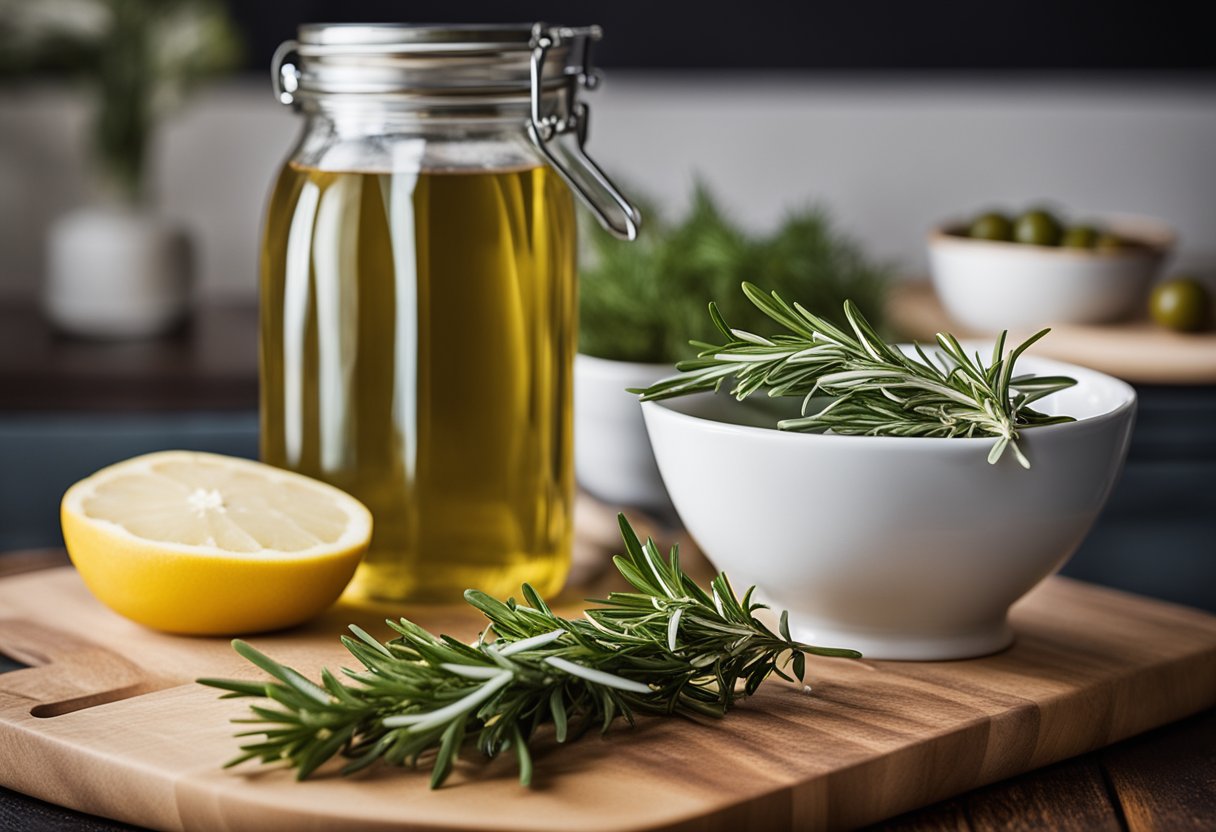Rosemary, the fragrant herb known for its needle-like leaves and distinctive woody aroma, often leaves us with a surplus, especially after a generous harvest from the garden or when we overestimate how much we need for a recipe. Rather than letting this delightful herb go to waste, there are numerous creative and practical ways to utilize the excess.
From infusing oils and crafting homemade skincare products to jazzing up culinary creations, rosemary’s versatility extends far beyond its traditional role in the kitchen. In this blog post, we’ll explore a myriad of innovative ideas for making the most of your extra rosemary, ensuring that every sprig is put to good use and nothing goes to waste. Whether you’re a cooking enthusiast, a DIY aficionado, or simply someone looking to reduce food waste, these suggestions will inspire you to view rosemary in a whole new light.
Culinary Uses for Rosemary
Rosemary’s aromatic flavor is versatile, elevating a variety of dishes. With its pine-like fragrance, it enriches the taste of meats, baked goods, and even oils.
Seasoning Meats with Rosemary
You’ll find that rosemary leaves an unforgettable mark on meats. Try topping your chicken or steak with fresh rosemary sprigs before roasting to infuse rich, herbaceous notes.
- Chicken: Rub with minced rosemary, garlic, salt, and pepper.
- Steak: Sprinkle with chopped rosemary and let it marinate.
Baking with Rosemary
Incorporate rosemary into your baked goods and they will sing with flavor. Imagine biting into a warm slice of rosemary focaccia or bread enhanced with this aromatic herb.
- Focaccia: Knead rosemary sprigs into the dough.
- Breads: Blend dried rosemary into your flour mixture.
Infusions and Flavored Oils
Infuse olive oil with rosemary to create a flavored oil that goes great with bread, pasta, or as a base in sauces.
- Gently heat olive oil and rosemary.
- Allow to cool, then strain for a clear, infused oil.
Salads and Dressings
Toss rosemary into your salads for a twist or whisk it into salad dressings to dress up even the simplest greens.
- Salads: Sprinkle finely chopped rosemary onto your greens.
- Dressings: Mix crushed rosemary with olive oil and vinegar.
Crafting Herb-Based Butter
Transform ordinary butter into rosemary butter for an irresistible sandwich spread or to dollop on potatoes.
- Mix softened butter with finely chopped rosemary.
- Store in the fridge and use as needed.
Revolutionizing Breakfasts
Break up the monotony of the first meal of the day by incorporating rosemary into breakfast favorites, from potatoes to pizza.
- Breakfast Potatoes: Roast with rosemary and sea salt.
- Pizza: Garnish with fresh rosemary after baking.
Beverages and Refreshments
Extra rosemary can transform your drinks menu with its aromatic twist, offering fresh and vibrant options ranging from warm teas to chilled cocktails.
Rosemary-Infused Drinks
Kickstart your refreshment game by steeping fresh rosemary sprigs in boiling water to create a Rosemary Simple Syrup. This versatile ingredient can add a herbal note to various beverages, such as Rosemary Lemonade or Limeade. Just mix with lemon or lime juice and cold water for a refreshing twist on classic favorites.
Cocktail and Mocktail Creations
Enhance your cocktail repertoire with a sprig of rosemary in your next Gin concoction. The earthy flavor pairs excellently with the botanicals in gin, especially when combined with fresh lemon juice and rosemary simple syrup. Prefer a non-alcoholic version? Substitute gin with sparkling water to enjoy a delightful Rosemary Mocktail.
Tea Time with Rosemary
For a cozy afternoon, brew a cup of Rosemary Tea by infusing fresh rosemary leaves in hot water. Serve this with a slice of lemon to add a citrusy balance to the herbal notes. Better yet, mix your next batch of afternoon tea with rosemary-infused simple syrup and fresh lemon to elevate the experience.
Enjoy these inventive ways to incorporate extra rosemary into your everyday beverages and afternoon delights!
Home Use and Decor
Rosemary’s versatility extends beyond the kitchen, enriching your home with its pleasant aroma and offering natural healing benefits. Its lush greenery can enhance your garden’s aesthetics throughout the fall and winter months.
Natural Aromatics and Decor
Transform your living space into a haven of natural aromatics by creating a rosemary simmer pot. Simply add a handful of rosemary to a pot filled with water and your choice of fruits, such as oranges or lemons, and let it simmer. The steam will carry the invigorating scent throughout your home, providing a fresh and aromatic atmosphere that feels both clean and comforting.
Rosemary in Home Remedies
Harness the healing properties of rosemary by extracting its essential oil for use in home remedies. You can apply the oil topically to soothe muscle aches or infuse it into bathwater for a relaxing, restorative soak. Keep in mind that it’s important to dilute essential oils properly before use to avoid skin irritation.
Gardening with Rosemary
Incorporate rosemary in your garden as it thrives in full sun and can withstand cooler temperatures in fall and winter. When growing herbs, remember to prune rosemary regularly to encourage new growth and maintain a pleasing shape. And don’t forget to add the trimmings to your compost pile to recycle the nutrients back into your garden.
Preservation and Storage
Creating longevity for your rosemary ensures you can enjoy its vibrant flavor year-round. Whether you’re planning to enhance your dishes with dried herbs or zesty marinades, proper preservation and storage are key.
Drying and Storing Rosemary
Start by gathering your fresh rosemary and wash it gently. Tie the sprigs into small bunches and hang them upside down in a warm, dry, and airy place away from direct sunlight. Once fully dried, crumble the leaves and transfer them to an airtight container. Store your dried rosemary in a cool, dark spot in your pantry, and it’ll be a go-to seasoning for months to come.
Making Rosemary Concoctions for the Pantry
You can easily transform your rosemary into culinary treasures.
- Rosemary Infused Olive Oil: Combine fresh rosemary and high-quality olive oil in a sterilized jar. Seal and let sit in a cool, dark place for about two weeks before straining – your salads will thank you for it!
- Rosemary Salt: Blitz dried rosemary with coarse salt in your food processor for a flavor-packed condiment.
- Rosemary Jelly: Simmer fresh rosemary in a pot with vinegar, sugar, and pectin for a uniquely herbal spread that will liven up any bread or pastry.
- Marinade: Mix finely chopped rosemary with vinegar, oil, and your choice of spices for a zesty marinade that will elevate meats and vegetables.
Remember to store your rosemary concoctions either in the pantry or the fridge, depending on their ingredients and your intended use. Keep them labeled with dates to track freshness.
Beauty and Wellness
Rosemary isn’t just a culinary delight; it’s a boon to your beauty and wellness regime. Packed with antioxidants and anti-inflammatory properties, rosemary can refresh, rejuvenate, and pamper your skin and body in ways you may not have imagined.
Rosemary for Skin and Body Care
Your skin deserves a treat, and rosemary is just the herb for the task. Make a simple rosemary salt scrub by mixing finely chopped rosemary with coarse sea salt and a carrier oil like olive or coconut oil. This combination exfoliates and moisturizes, leaving your skin smooth and refreshed. Switch to a rosemary facial toner to help clear your complexion; steep rosemary leaves in boiling water, strain, and cool for a natural pore-tightening wonder.
Crafting Natural Beauty Products
Getting creative with rosemary can lead to delightful natural beauty concoctions. For an invigorating orange rosemary salt scrub, combine orange zest with rosemary and sea salt for a citrusy twist on the classic scrub. Interested in a DIY natural deodorant? Mix coconut oil, baking soda, and ground rosemary for an effective and aromatic alternative. Remember, the scent of rosemary can also boost your cognitive performance, making your beauty routine not only refreshing but also mentally invigorating.
Frequently Asked Questions
Rosemary is more than just an aromatic herb; it’s a versatile favorite that can elevate your cooking, home ambiance, and even your self-care routine.
How can I incorporate rosemary into homemade recipes?
You can chop fresh rosemary and sprinkle it over roasted vegetables to enhance their flavor. Try adding whole sprigs to marinades and soups for a subtle depth that builds with simmering.
What are some creative uses for rosemary in the home?
Bundle rosemary twigs to use as a fragrant kindling in your fireplace for a piney aroma, or craft homemade rosemary wreaths to freshen up any room. Rosemary essential oil can also be used in DIY cleaning products for a natural disinfectant with a fresh scent.
Are there any health benefits associated with using rosemary medicinally?
Incorporating rosemary may aid in improving digestion and promoting circulation. Some people also use rosemary oil for its potential to enhance memory and concentration due to its stimulating properties.
What’s the best method for making rosemary-infused water?
Simply steep fresh rosemary sprigs in boiling water for about 5 minutes, then remove the sprigs and enjoy the infusion either hot or iced. For stronger flavor, muddle the leaves before steeping them.
Can rosemary be used to enhance hair health, and if so, how?
Create a rosemary hair rinse by steeping rosemary leaves in hot water for 15 minutes. After shampooing, pour the cooled infusion through your hair as a final rinse to potentially boost shine and scalp health.
Is it possible to preserve rosemary by freezing it and how?
Absolutely! Freeze chopped rosemary in ice cube trays with water or olive oil to add a burst of flavor to your dishes. Or for longer preservation, freeze whole sprigs on a baking sheet and then transfer them to a sealable bag to retain their freshness.







